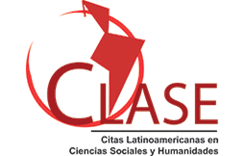CHALLENGES IN PLANNING URBAN SUSTAINABILITY POLICIES IN THE CITY OF SÃO PAULO
DOI:
https://doi.org/10.54399/rbgdr.v18i2.6533Keywords:
Sustainability, Urban Sustainability, Urban Planning, Public PolicyAbstract
The city of São Paulo in Brazil represents the most important urban center in South America due to its geospatial, demographic, and economic characteristics. The present study aimed to investigate in what way the city of São Paulo considers e acts to issues related to urban sustainability. To this end, a bibliographic review about urban sustainability was first carried out. In a second step, through qualitative and exploratory research, in-depth interviews were conducted with people who represented the views of the public and private sector, the academy, and civil society dealing with sustainable projects in São Paulo. Among the main results, it was possible to conclude that, despite the small advances that the city has managed to make in recent years, it cannot yet be considered sustainable. For this scenario to be more positive in the future, it is essential that the municipality acts on three fronts: urban planning, reduction of social inequality, and environmental education.
Downloads
Published
How to Cite
Issue
Section
License
Copyright (c) 2022 Revista Brasileira de Gestão e Desenvolvimento Regional

This work is licensed under a Creative Commons Attribution-NonCommercial 4.0 International License.
Authors who have their papers accepted and published in the Brazilian Journal of Regional Management and Development must agree to the copyright policy CC BY https://creativecommons.org/licenses/by/4.0/.
If the article is accepted for publication, the copyright is automatically assigned to the Brazilian Journal of Regional Management and Development.

















